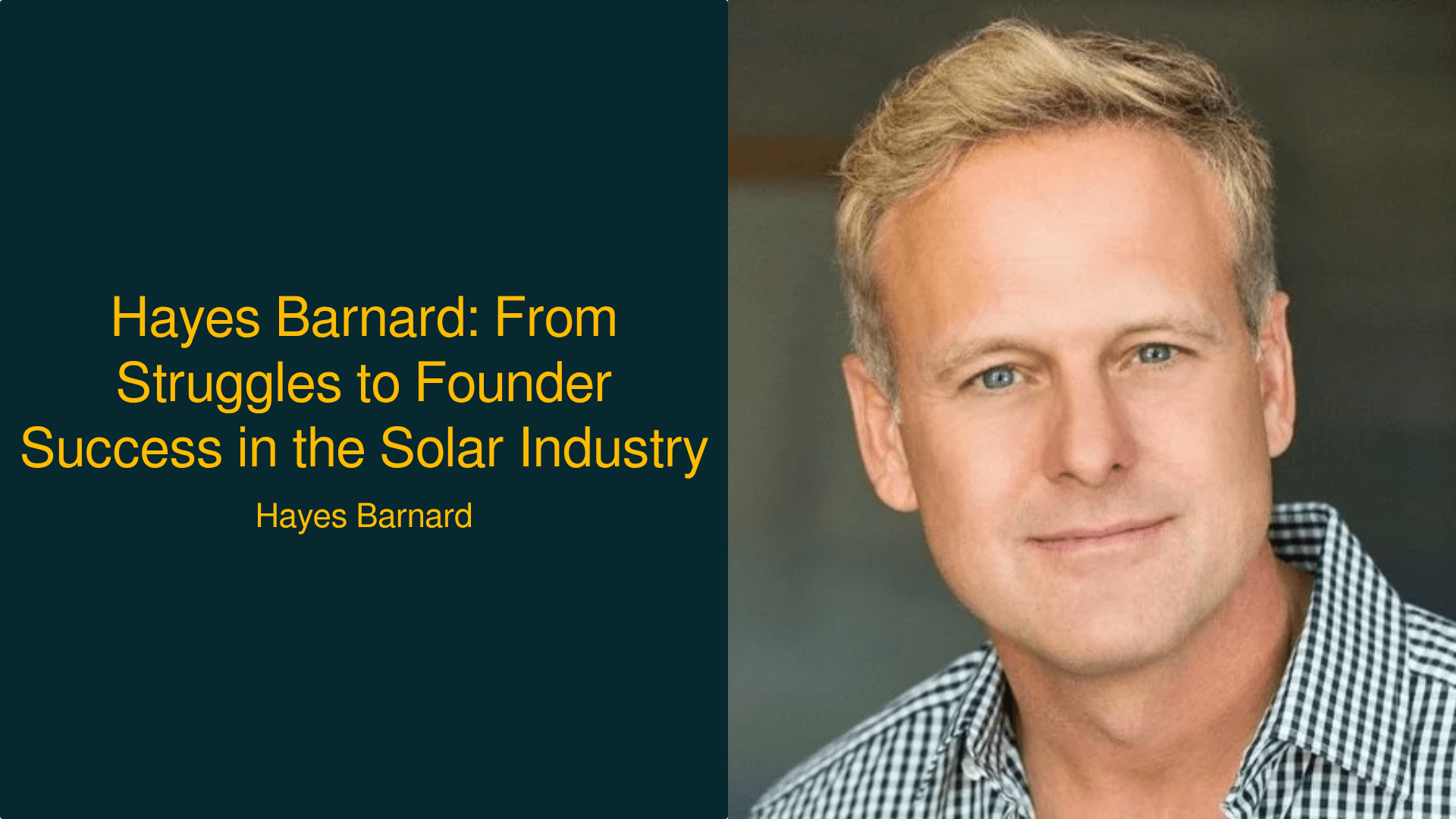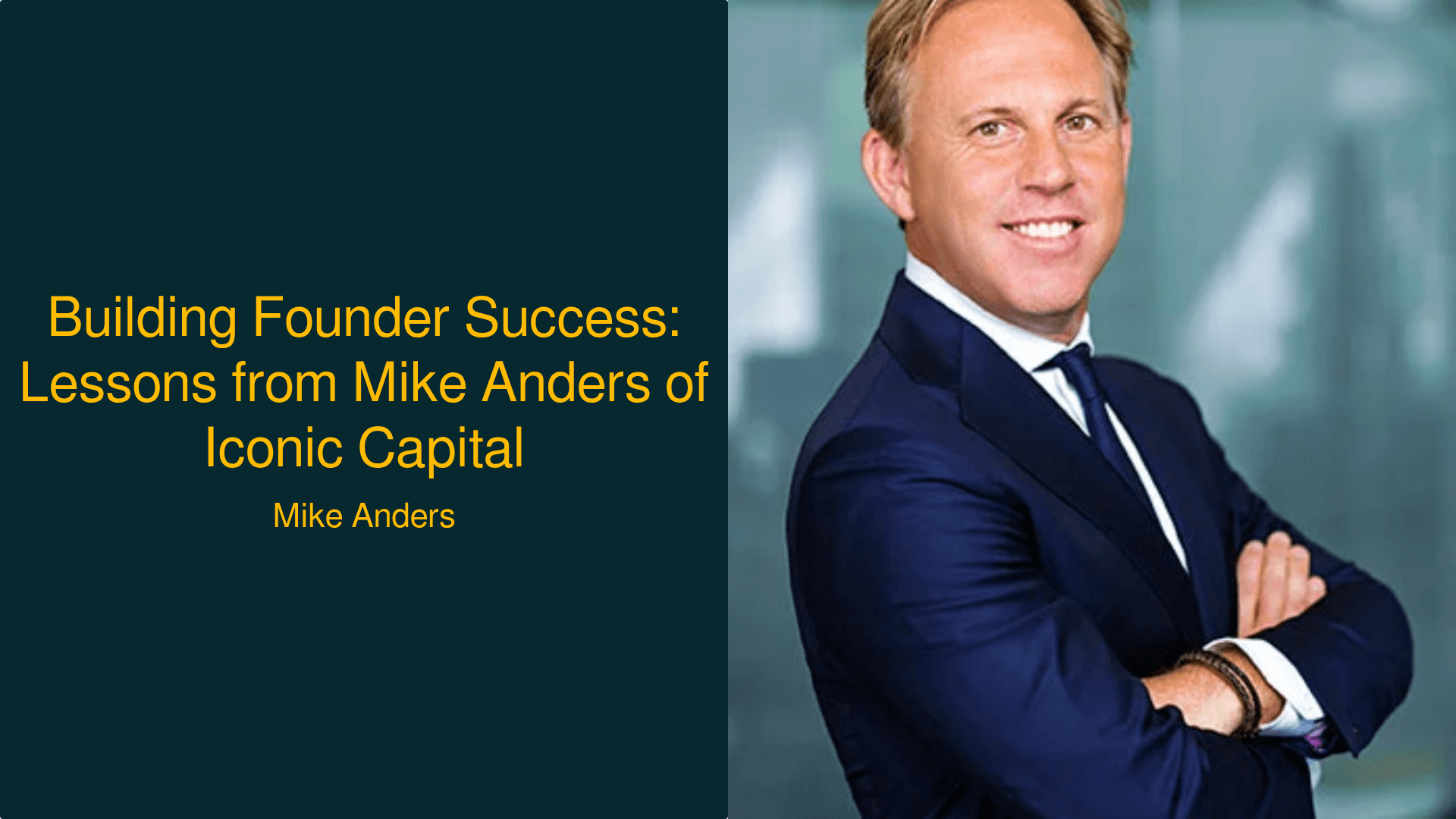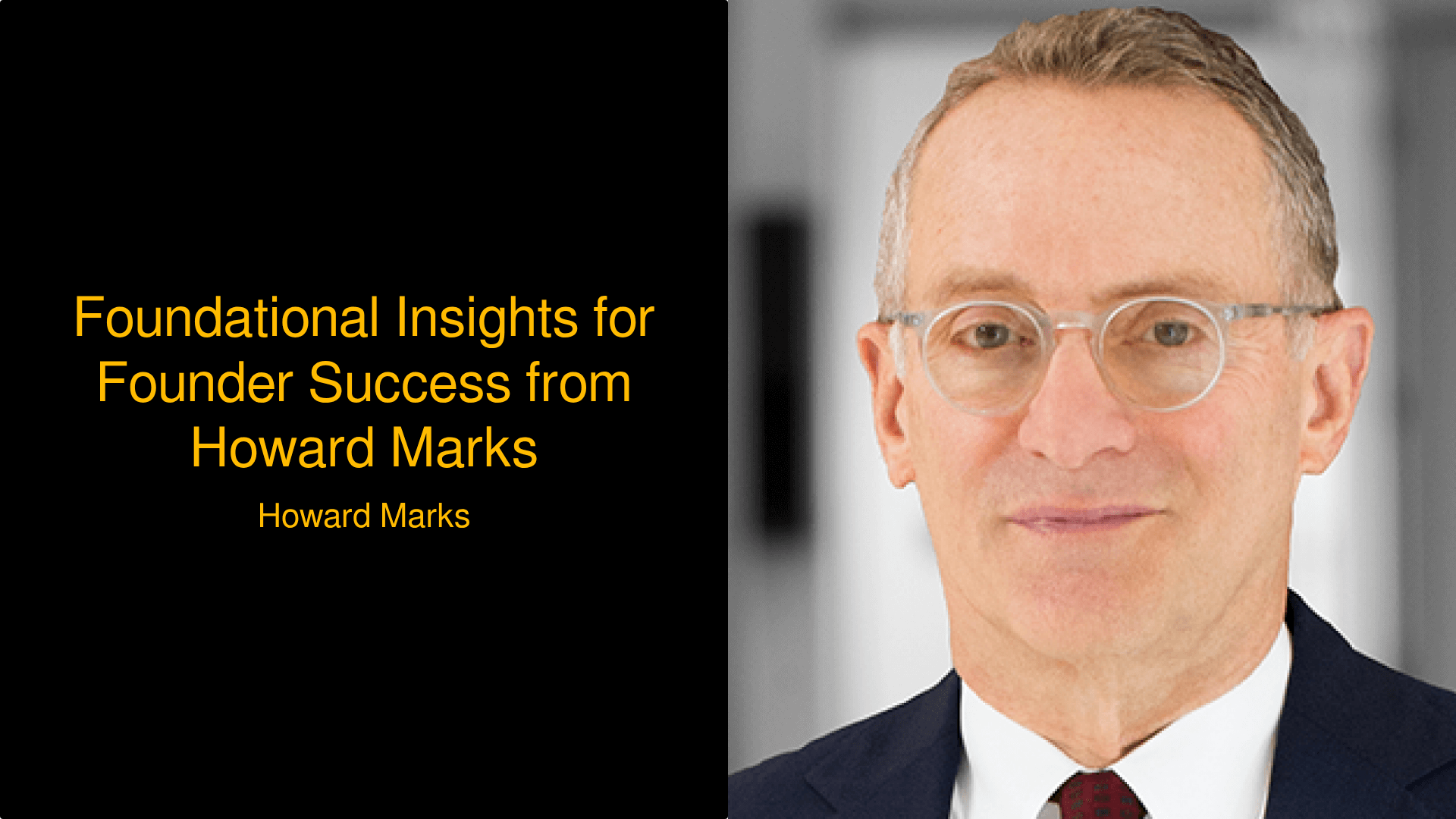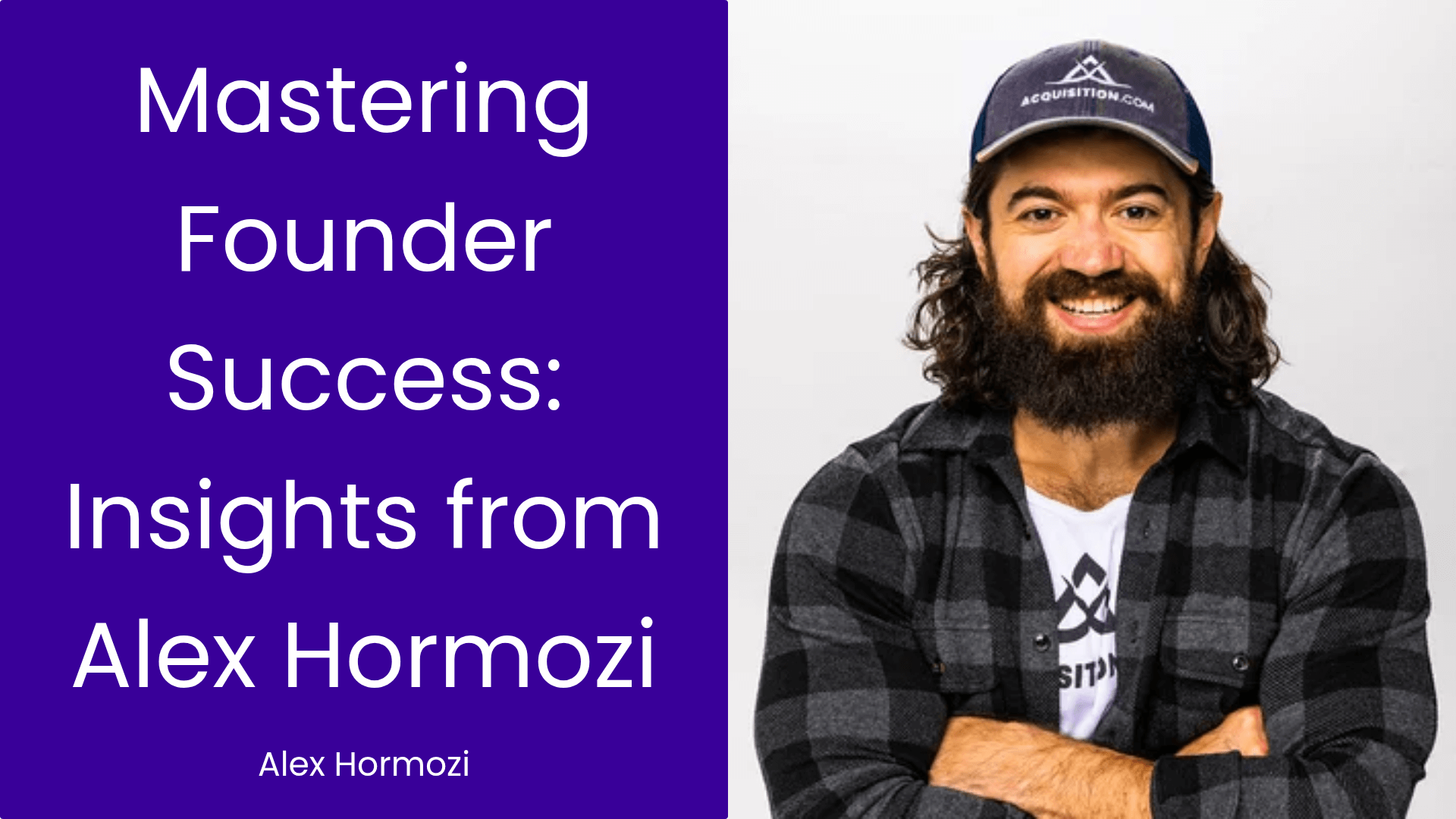Hayes Barnard: From Struggles to Founder Success in the Solar Industry
Discover Hayes Barnard's journey from adversity to founding a billion-dollar solar company, and the lessons for aspiring entrepreneurs.

Hayes Barnard: From Struggles to Founder Success in the Solar Industry
In the world of entrepreneurship, stories of resilience often inspire us to push through our toughest challenges. Hayes Barnard’s journey is a remarkable example of how overcoming adversity can lead to phenomenal founder success. This article delves into his life, from flunking out of first grade to building a billion-dollar solar company, and the valuable lessons he learned along the way. Barnard’s commitment to empowering others through innovative solutions in the solar industry and philanthropy highlights the importance of determination, empathy, and vision. In this piece, we will explore key insights and actionable strategies that can guide aspiring entrepreneurs on their own paths to success.
Overcoming Adversity: The Foundation of Founder Success
The difference between rejection results is just how long you stick with it. — Hayes Barnard
Why it matters: Hayes Barnard’s early struggles with learning disabilities and financial instability shaped his resilience and determination. This foundational experience taught him that perseverance is crucial in the face of challenges. According to research from the University of Pennsylvania, grit—a combination of passion and perseverance—is a significant predictor of success. Barnard’s ability to endure hardships has not only fueled his entrepreneurial spirit but also fostered a deep understanding of the importance of grit for other founders. His story serves as a reminder that setbacks can lead to growth, and that resilience is an essential trait for any entrepreneur.
How to Cultivate Resilience
- Embrace Failure: View failures as learning opportunities rather than setbacks.
- Set Realistic Goals: Break down larger objectives into smaller, achievable steps to maintain motivation.
- Surround Yourself with Support: Build a network of mentors and peers who can provide encouragement and guidance.
- Practice Self-Care: Prioritize mental and physical well-being to sustain energy and focus.
- Reflect and Adapt: Regularly assess your progress and be willing to pivot when necessary.
Finding Purpose: Aligning Business with Values
You can’t address migration issues until you address the water issue. — Hayes Barnard
Why it matters: Barnard’s commitment to social impact is evident in his shift from solar energy to water access initiatives. By recognizing that sustainable water access is crucial for enabling education and health, he has positioned his ventures to not only focus on profit but also on purpose. Research from Harvard Business Review highlights that companies with a strong sense of purpose outperform their competitors in terms of financial performance and employee satisfaction. Barnard’s approach underlines the importance of aligning business objectives with social impact, demonstrating that success is multifaceted.
How to Align Your Business with a Greater Purpose
- Identify Core Values: Determine what principles are most important to you and your business.
- Analyze Market Needs: Explore how your business can address critical social or environmental issues.
- Set Measurable Goals: Establish clear objectives for integrating purpose into your business model.
- Engage Stakeholders: Collaborate with employees, customers, and community members to enhance your impact.
- Measure Outcomes: Regularly assess the social impact of your initiatives and adjust strategies accordingly.
Innovating for the Future: The Blue Ocean Strategy
What if I can make my competition our biggest partner instead of our biggest competitor? — Hayes Barnard
Why it matters: Barnard’s application of the Blue Ocean Strategy in the solar industry exemplifies how innovation can disrupt traditional business models. By focusing on collaboration rather than competition, he has created a sustainable ecosystem that benefits all stakeholders. The Blue Ocean Strategy, as described by W. Chan Kim and Renée Mauborgne, encourages businesses to explore uncharted market spaces where competition is irrelevant. This strategic approach not only fosters innovation but also drives growth by opening up new revenue streams and creating shared value for the community.
How to Implement the Blue Ocean Strategy
- Assess Current Market Landscape: Identify competitive forces and market dynamics in your industry.
- Explore Unmet Needs: Conduct research to uncover gaps in the market that your business can address.
- Innovate Offerings: Develop unique products or services that meet these unmet needs while providing value.
- Foster Collaboration: Build partnerships with competitors and other stakeholders to expand your reach.
- Continuously Adapt: Stay agile and responsive to changes in the market to maintain your competitive edge.
Empathy in Leadership: The Key to Building Strong Teams
You have to give up to go up. — Hayes Barnard
Why it matters: Barnard’s emphasis on empathy and compassion in leadership highlights the transformative power of understanding and valuing team members. By fostering a culture of support and collaboration, leaders can inspire their teams to achieve extraordinary results. Research conducted by the Center for Creative Leadership indicates that leaders who demonstrate empathy are more effective in building trust and driving performance. This approach not only enhances employee satisfaction but also contributes to long-term organizational success.
How to Cultivate Empathy as a Leader
- Listen Actively: Practice active listening to understand your team members’ perspectives and concerns.
- Share Vulnerabilities: Be open about your own challenges and experiences to foster trust.
- Encourage Feedback: Create an environment where team members feel comfortable sharing their thoughts and ideas.
- Recognize Contributions: Acknowledge the efforts and achievements of your team to reinforce their value.
- Invest in Development: Offer opportunities for growth and learning to empower your team.
The Power of Philanthropy: Creating Lasting Change
We can change the world, one drop at a time. — Hayes Barnard
Why it matters: Barnard’s philanthropic efforts through Give Power demonstrate the profound impact that businesses can have on communities. By addressing critical issues such as water scarcity and access to education, entrepreneurs can create lasting change that extends beyond their immediate business goals. Research from the Stanford Social Innovation Review emphasizes that social entrepreneurship can drive significant social change while providing a sustainable business model. This approach empowers entrepreneurs to leverage their resources and expertise to make a meaningful difference in the world.
How to Get Involved in Philanthropy
- Identify Causes That Matter: Reflect on the social issues that resonate with you and your business.
- Engage Your Team: Involve your employees in discussions about potential philanthropic initiatives.
- Develop a Strategic Plan: Create a clear strategy for how your business can make a positive impact.
- Collaborate with Nonprofits: Partner with established organizations to enhance your philanthropic efforts.
- Measure and Share Impact: Track the outcomes of your initiatives and communicate results to inspire others.
Conclusion
In summary, Hayes Barnard’s journey from adversity to founder success is a powerful testament to the resilience and determination required to build impactful businesses. His experiences offer valuable insights into the importance of perseverance, purpose, innovation, empathy, and philanthropy in the entrepreneurial landscape. As aspiring founders navigate their own paths, they can draw inspiration from Barnard’s story and the actionable strategies outlined in this article. By embracing challenges, aligning their businesses with meaningful values, and fostering a culture of empathy and collaboration, entrepreneurs can create lasting change in the world. The call to action is clear: take the lessons learned from Hayes Barnard’s journey and apply them to your own entrepreneurial endeavors—because the journey to founder success is not just about building a business; it’s about making a difference.


